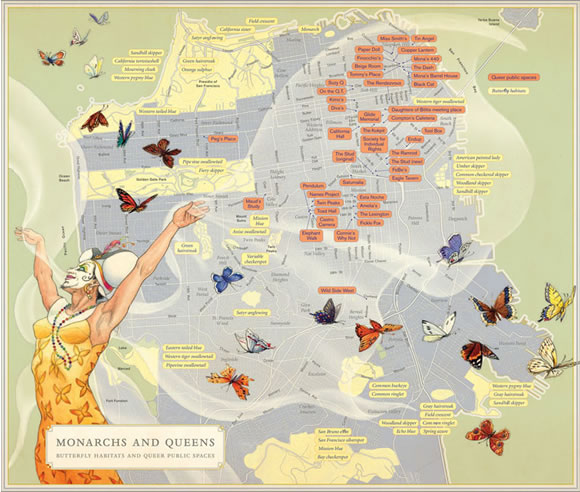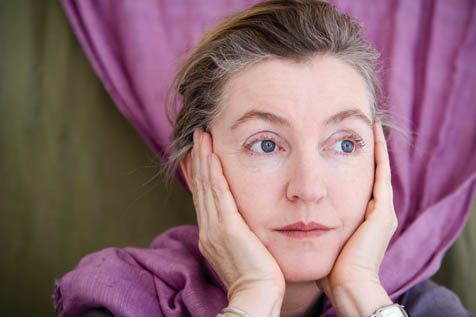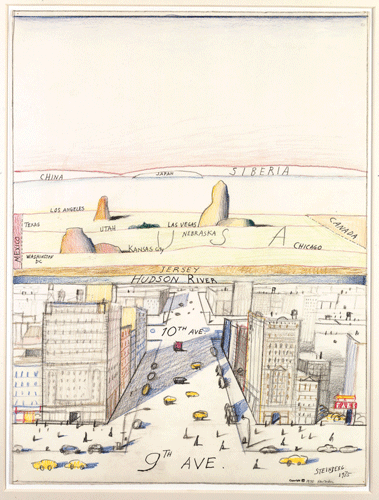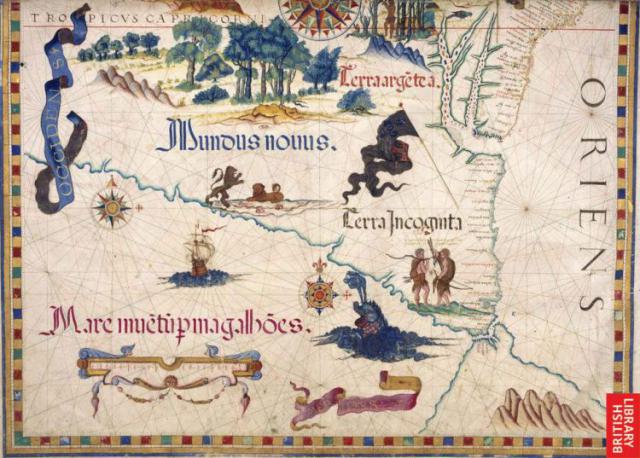Serendip is an independent site partnering with faculty at multiple colleges and universities around the world. Happy exploring!
Notes Towards Day 3 (Tues, Sept. 11): On Getting Lost


Rebecca Solnit's newest book, Infinite City, includes 22 color maps of the San Francisco Bay Area,
each one illuminating the city and its surroundings as experienced by different inhabitants
(this one juxtaposes the habitats of local butterflies with the shifting locations of queer public space....!)
I. Susan took us out to a site among the beechtrees, near the labryinth;
on Thursday, Maddie is leading us to Taft Garden, behind Canaday Library
II. introductions--how are you doing? ask one another to introduce ourselves...
III. writing conference schedule now on-line:
take a minute to confirm that this will work for you...
Rochelle, Zoe, Sarah C tomorrow morning;
Maddie, Hannah, Elizabeth and Minh before class on Thursday
my office is English House 205: KNOCK WHEN YOU ARRIVE!
(timid politeness gets you nothing here...)
everyone else should have gotten their paper back from me w/ comments--yes?
IV. talk about writing that first paper:
reports in our on-line course forum about what was challenging,
or satisfying, in writing up your "Thoreauvian walk":
How did you try to make your work like-or-different from Thoreau's?
From what your classmates have said about their own?
Barbara: In my Friday essay, by using "lost", I was trying to express the situation where people feel idle, bored, and worthless. But Solnit’s “lost” is to be “fully present"…when people are trying to say the same thing, they use different words to express themselves
wanhong: When I was doing Thoreauvian Walk,…I felt that my mind was going blank--it wasn't as amazing as I had imagined….Walking as a freeman was a whole new experience to me, and …the shadow of freedom surrounded me.
mtran: I find it impossible for me to walk like Thoreau, to leave behind all social affairs,…and just go on for an aimless walk. Perhaps it is because we are born into a life of busyness…. We hardly ever slow the pace of life to the level of sauntering. Even when I walk just to relax, I cannot keep my mind from thinking…
Sarah Cunningham: I found this one very hard to do…Thursday had been full…leaving me feeling used up and decidedly un-Thoreauvian. I felt, grumpily, that a walk under the duress of producing a peper from its ruminations could not possibly be an authentically Thoreauvian one. Once I'd written the paper I realized there were underlying emotional reasons too, which I'd been keeping well buried…
Hannah: I didn't really feel any difference in my walking style while I was trying to walk like Thoreau. I think that Thoreau wants us to be thoughtful and mindful when we walk and to be curious and adventurous about what new things we might encounter, and I already do that a lot of times ...
mbackus: … not only was I not ready to take a Thoreauvian walk, I didn't want to. I wanted to …sit and … observe and … think… I began to think about the concept of boundaries…There is no limit on learning, and the boundaries of a college campus do not define an area in which knowledge can be gained.
RochelleW:…this assignment was difficult for me. … I found it hard to separate the walking from writing about (or preparing to write about) the walking.…I think…that it is not possible…. to fully experience something while at the same time trying to document it….I was unable to completely escape from my obligations to society. They clung to me and I clung to them.
ZoeHlmn: As I … tried to imitate a Thoreauvian Walk my brain was unusually peaceful….I was much more aware of my inner monologue …Why is everyone always rushing? ..why must we live in a world of dates and deadlines that cause excess amounts of stress? …I also thought about …how normal routes on campus only give one personal view. ...This concept of relative perspective has spurred my want to explore more of Bryn Mawr's campus.
Susan Anderson: As I started my walk my definition of center and border changed….Biologically, organisms clump themselves around where there are the most resources. Typically...water because most organisms need that to survive. Humans have partially removed themselves from this practice. Because we have tools that bring our necessities to us, we look to go to places that satisfy our social or academic needs. So, as an academic institution, the people of Bryn Mawr center themselves around the buildings where they have classes...on the weekends, the center shifts to the dorms as students seek to fulfill their social needs... an idea like center is complex...
Cahier: …like plants, I have a place with resources that I love to go to. …having made my nest of books, blankets, tea and friends in Brecon, that is where I always come back to, and so it is the center of Bryn Mawr for me...
CMJ: …this campus has some highly strange things in and around it (Moon bench? What?… and a medium-sized, permanent-looking fake boulder plopped down near the entrance to Denbigh….I took …basically a very circuitous route…and on the way, discovered some very interesting things which I was not searching for. I became a modern-day, female, extremely abridged version of one of my favorite Greek heroes, Odysseus.
alexb2016: …boundaries aren’t limited to geographical terms, but can also be defined as a diffusion of sensation. As I moved away from campus, I thought less and less about the tribulations of my day.…I also thought a lot about one of the Thoreau’s quotes that troubled me...that, “if you …have settled your affairs, and you are a free man—then you are ready for a walk”. Although it’s a romantic thought, I find that it’s not a very realistic one.
Sara Lazarovska: I had some moments of introspection during my walk …I realized…that Bryn Mawr already feels like home to me - I can ask all the questions I want and no one devalues me...not only do I feel accepted, but welcomed and appreciated too.
Shengjia-Ashley: When I strayed outside of the campus. I felt lonely and unsafe. I felt really uncomfortable because I don’t feel I belong there….[but then] a Bryn Mawr woman saw me on the other side of street and waved to me. Suddenly, I got this feeling that I was transported back to school. I felt warm and safe. That is when I begin to think that boundaries of Bryn Mawr College can not be measured geographically… the boundary of Bryn Mawr College can extend to London....
what did you learn from this experience?
did you locate some boundaries? a center?
is it possible to "saunter" if you have to write a paper about it?
V. your next paper due this Friday! select a single visualization of the Bryn Mawr campus
(a map--cf. these 3?-- a photograph, a sketch? of what era?), and then send Anne the image
as the opening "quotation" of a 3-pp. explanation (=paper) about what you are choosing to
foreground about the campus, and why [for some ideas, see the range of images @
Imagining the Human in the Landscape....] In Solnit's terms, what is background in this visualization?
Where are its boundaries? What is terra incognita here? (We're going to do a warm-up for this today...)
VI. reading for Thursday's (inside!) class will be your introduction to an (amazing?!)
field called "eco-linguistics," a new paradigm of linguistic research which emerged in the 1990s,
to take into account of the ecological context and consequences of language,
how it influences the life-sustaining relationships of humans with each other,
with other organisms and with the natural environment (some of the most exciting
material I uncovered this summer; we'll spend a few classes on it, beginning w/)
a dense 20-pp. essay by David Bohm, "The rheomode --an experiment with language and thought."
Bohm was one of the most significant theoretical physicists of the 20th century;
he also contributed to studies in philosophy of mind and neuropsychology.
He is noted, among other things, for his work on "implicate and explicate order":
"things, such as particles, objects, and indeed subjects" exist as "semi-autonomous
quasi-local features" of an underlying activity, independent only up to a certain level of approximation."
I've selected the second chapter of his 1996 book, Wholeness and the Implicate Order,
which you can read (and annotate, with AdobeReaderX!) on-line, through Canaday Library;
here he imagines a new "mode" of language, built up from verbs (which he calls the
"rheomode," or "flowing" mode), that does not fragment/separate parts of the world from one another.
I think it's amazing! I think you are going to think it's hard!
So read what you can, come w/ 3 questions you want to ask of Bohm, of me, of the class
(for ex: how might we re-write Thoreau--or your own paper--in "rheomode"?)
VII. But first! for today, stepping off from the two selections we read from Solnit's book,
A Field Guide to Getting Lost...which argues,among other things, that getting lost is an
important part both of childhood and of growing up...talk about that idea? do you agree?
what does it mean to get lost? how is that different from losing (things)?
Imagine yourself streaming through time shedding gloves, umbrellas, wrenches, books, friends, homes,
names. This is what the view looks like if you take a rear-facing seat on the train. Looking forward you
constantly acquire moments of arrival, moments of realization, moments of discovery ... you are greeted
by what you have never seen before ... the art is ... one of ... letting go. And when everything else is
gone, you can be rich in loss (p. 22-23).
Cf. Elizabeth Bishop's poem, "One Art," which begins,
"The art of losing isn't hard to master....,"
and ends, "Though it looks (write it!) like disaster."
(she's trying to talk herself into this position...)
can/should we turn "getting lost" into an educational program??
"How do you go about finding those things that are in some ways about
extending the boundaries of the self into unknown territory, about becoming
someone else?.... To calculate on the unforeseen is perhaps exactly the
paradoxical operation that life requires of us .... "To lose oneself ...
requires quite a different schooling" (pp. 5-6).

[we didn't get to any of these exercises below....]
An exercise (if you are lost, consult a map!):
1) Get out a sheet of paper.
* draw a map of the world
* map your life onto it, with dates:
year you were born (and where); where you are now (and when);
several other significant-to-you locations in space and time.
Feel free to add details to the maps. (Start to fill in a story that
begins in one of those locations, and ends w/ another...)

On another sheet of paper,
* map the world as you see it, from your own point of view
"...each of our lives traces its own map onto the shared terrain" (Solnit, p. 174).

Saul Steinberg, "View of the World from 9th Avenue" (1976)
*finally, map the blank spaces in your world:
what do you not know? how can you represent that?
draw your own terra incognita...?

What sort of map can guide us, into the sort of education Solnit advises?
"any place can be mapped infinite ways .... maps are deeply selective ....
maps cannot be commensurate with their subject .... No representation is complete" (Solnit, p. 162).
(Anyone want to share her map[s] and an
explication of what went into making 'em....?)
"Perhaps fantasy is what you fill up maps with rather
than saying that they too contain the unknown" (p. 164).
...we navigate by stories, but sometimes we only escape by abandoning them (p. 181).


